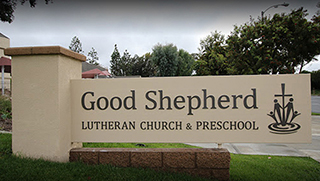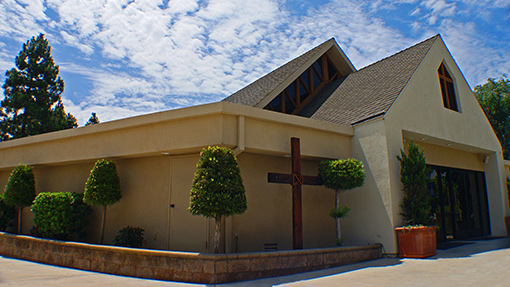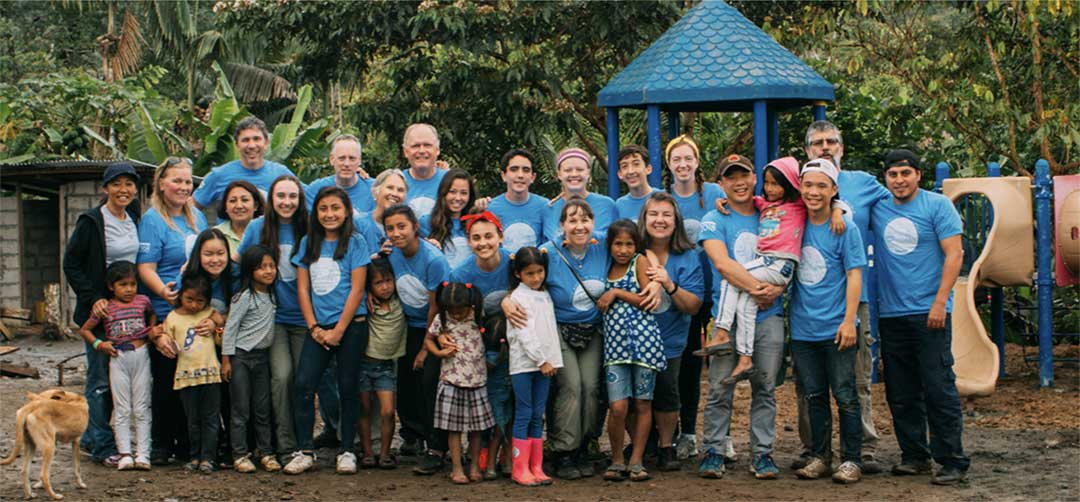[Note from Editor Bill Moberly: Pastor Ryan Warne-McGraw, missions pastor at Good Shepherd Lutheran Church in Irvine, CA, has a lot of wisdom and experience in developing the global mission ministry of Good Shepherd. He and the mission team have been prayerful and purposeful in finding God’s path for them to impact the nations. They work where Good Shepherd can also send teams and have personal relationships. He shared their global mission strategy with me in a recent interview.]
Good Shepherd Lutheran Church
To Know Christ and to Make Him Known


Good Shepherd Lutheran Church in Irvine, California, was founded in 1976. We are a Christian Church, aligned with Lutheran Congregations in Mission for Christ (LCMC). We take seriously Jesus’ Great Commission to “go, teach, and baptize in the name of the Father, Son and Holy Spirit,” and Jesus’ Great Commandment to “love God and love our neighbor.” We seek a relationship with Christ and to share that with others.

Good Shepherd Lutheran Church, Irvine, California
Pastor Ryan: At Good Shepherd Lutheran Church in Irvine, California, we believe that our short-term missions are only as good as the Global Mission Partners that God has led us to collaborate with in the mission field. We take an interdenominational approach to our mission partnerships, serving from points of commonality in the Gospel, rather than a requirement that they be Lutheran.
Editor: So, you focus on collaboration in ongoing partnerships, rather than simply dispensing benevolence. Why is that?
Pastor Ryan: It used to be that we could follow denominational guidance to support missionaries, send benevolence dollars, or attend a short-term mission. Yet now, more than ever, church leaders and mission teams need to prayerfully discern where and with whom God is calling you to work. Finding trustworthy mission partners, discovering how we can join in what God is already doing through them, and fostering those partnerships while we are away, are all components of the “secret sauce” of any global mission ministry. Mission partnerships are important, so we don’t come in as “saviors,” but trust the wisdom of our partners and help them reach their goals for the communities in which they already serve.
Editor: Where are you working and with whom?
Pastor Ryan: Good Shepherd works with Graceworks in Alaska, Kids Around the World in Ecuador, and Building Bridges of Hope in Haiti/Dominican Republic.
Editor: You describe the importance of relationship with your partners. How did you proceed during the pandemic?
Pastor Ryan: During the COVID-19 pandemic, we had to cancel our normal mission trips to Alaska, Ecuador and Haiti/Dominican Republic. However, while our short-term missions had to pause, our mission partners continued their hard work during the crisis. Our congregation was able to invest significant dollars into supporting our Global Mission Partners from our regular benevolence giving, as well as a special Luau missions fundraiser we hold each summer.
Our Global Mission Team met via Zoom with our mission partners to hear first-hand accounts of how these mission dollars have greatly benefited their programs during the pandemic, and how we could support and pray for them. Our prayer is that we can return to the mission field in to support these missions with hands-on service.
Editor: Can you describe in more detail how your partnership works, for example, in Ecuador?
Pastor Ryan: “KATW (Kids Around The World) is primarily a resource ministry, partnering with local churches to plant churches by bringing food, playgrounds, water filters and KIDStory to communities. Director Steve Nine recently expanded their offerings to include parent training videos so parents can disciple their children in the home.
Like many nations, Covid shut down travel in and out of the Ecuador for months and slowed the implementation of food distribution and church planting efforts. On October 15, 2021, our 50,000 meals arrived so over 100 children and families will receive food for an entire year. They package food so families can eat at home (as is their custom), rather than coming to a feeding center. Our mission dollars also helped with KIDStory discipleship and staff support.
Good Shepherd is partnering with KATW in Aguas Caliente Verdes (Hot Green Waters) to see if a church plant can be established in this community. We are praying for a local believer who can provide the spiritual leadership needed to support a church community.

Good Shepherd Lutheran Church joins with Kids Around the World in Ecuador to build a playground
Editor: So, what would you say is an important question now for Pastors and mission team leaders at this time?
Pastor Ryan: Now that access to the mission field is starting to resume in many areas of the world, where is God calling you to serve? What mission partnerships should you prayerfully consider?
Develop Global Mission Partners
Don’t settle for simply sending benevolence – develop partnerships!
A good place to begin is with the CGM global mission partners. It does take some extra work, but the transition to partnerships will bear fruit in the mission field and in your congregation! May the Lord richly bless your investment in His call to your church to “make disciples of all the nations”!
Here are some suggestions from editor Bill Moberly:
How to Find Global Mission Partners
- Search for organizations that serve in the countries you are called to serve.
- What is the need in the countries you are considering?
- What is the size and strength of the church there?
- How can you come alongside of Christians seeking to conduct ministries in those countries?
- Discern alignment of mission objectives. Are Gospel proclamation and making disciples included, or even allowed? Some ‘Christian’ relief agencies actually prohibit the preaching of the Gospel!
- Are the leaders “persons of peace” for you? Can you work together?
- Check Charity Navigator rating or other metrics for how they handle money/donations.
- Do they have a financial need? Some large, well-established organizations are prolific fundraisers, do great work, and so have very large cash reserves. Others do great work and have real time need.
- Many Christian global mission agencies will not be found at Charity Navigator simply because they are not required to submit a 990 to the IRS. They should be open to answer any questions, provide financial reports, or give annual administration, fundraising and program expense percentages.
- Check references with other groups who have worked with them.
- Spend time getting to know them. Communication is key!
- Do they have capacity to manage and host short-term teams?






